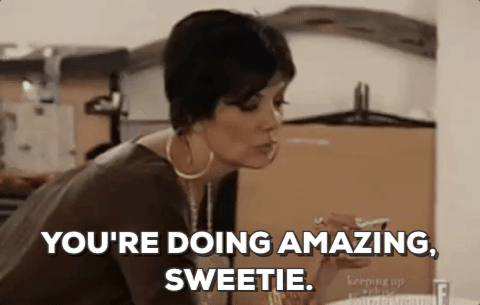
Figuring out your attachment style sounds like one of those pseudo-psychological exercises that you talk about around the dinner table between tucking into your love languages and the benefits of going gluten-free. But the truth is, despite it's cheesy rap, it's an important step in having healthier relationships and a calmer internal landscape.
What is an attachment style?
Loosely defined, an attachment style categorizes how you interact and behave in relationships - based on a number of past and internalised experiences or narratives in your head that you've accepted as fact. Figuring out which one you currently have allows you to identify pain points in terms of how you interact with others (and yourself), and then to address them. It's a difficult but rewarding exercise that requires you to be honest with yourself and the people around you. I'm not an expert on any of this but luckily, there's a wealth of information from people who are. So, let's go on this journey of healing and self-discovery together :)
Attachment styles in a nutshell
Fearful avoidance
Psych Alive defines the fearful avoidance archetype as "a person who lives in an ambivalent state of being afraid to be both too close to or too distant from others. They attempt to keep their feelings at bay but are unable to; they can’t just avoid their anxiety or run away from their feelings". (Lisa Firestone, PhD)
Struggles to regulate their emotions
Responds with very negative emotions
Has a poor opinion of themselves
Views support from other people in a negative way
Struggles in romantic relationships
Typically has a lot of sexual partners
Heightened anxiety
Fear of commitment
Might show more aggression in romantic relationships
What to do about it
Anxious pre-occupied
Psychology Today defines the anxious-preoccupied archetype as "desperate to form a fantasy bond. Instead of feeling real love or trust toward their partner, they often feel emotional hunger. They’re frequently looking to their partner to rescue or complete them".
Hyperventilate about separation
Anxious or panicky when left
Uses strategy to reattach (children might act seductively or try to be cute)
Distracted by interpersonal concerns
Difficulty concentrating
Put their need for reassurance above other tasks
In dating, they sometimes try too hard
Sometimes miss subtle cues from partners
“Were seen by their peers as more anxious, introspective, ruminative.” (Karen, p. 383)

What to do about it
"The key to happier relationships for the anxious-preoccupied is working toward an inner feeling of security and independence. This is easier when a secure partner is present — the reliability of the partner’s signalling and response reassures, letting inner security grow". (Jeb Kinneson)
Dismissive avoidant
Someone who has dismissive-avoidant attachment style might see themselves as a strong, independent person and try and do things alone. They don't like opening up, they're distant and can seem a bit cold and they struggle to forge those long-term friendships other people often enjoy.
Has "seductive personalities"
Typically male
Struggles to share
Hope that you will break it off with them
Disconnect between conscious thoughts and emotional system,
Can get annoyed by closeness or affection
Gets irritate with normal affectionate behaviour
What to do about it:
Watch this video.

Secure:
"Secure attachment is an adult attachment style that is characterized by a positive view of the self, others, and relationships. An adult attachment style is the way in which adults in a romantic relationship relate to each other". (Study Secure Attachment)
Builds relationships on trust, love and commitment
Has a positive view of themselves
Comfortable with intimacy
Secure
Resolve disagreements respectfully
Open and honest
Enjoy spending time with their partners
Happy and comfortable in their relationships
What to do about it
Just keep doing what you're doing.

If you're stuck and can't figure out which one you most embody, you could try this quiz from the personal development school.
Okay, good luck.
Love, Kerry.
Comments